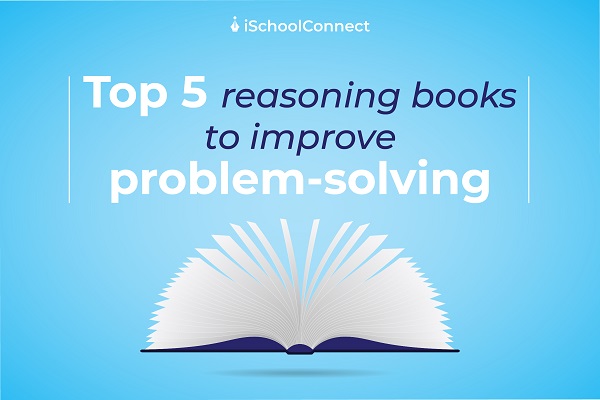Table of Contents
A lot of students find the Quants and the Verbal sections of the GRE (Graduate Record Examination) exam fairly easy to deal with. It’s the GRE Analytical Writing section that gives almost everybody a run for the woods. To reduce your nervousness and help you prepare for the GRE Analytical Writing section, I have included in-depth details about each question type and shared tips on how to nail it. Along with that, you will also find 8 GRE sample essays to help you get started. So, what are you waiting for? Dive in!
GRE Analytical Writing section
Before we get started, it’s important to understand what the GRE Analytical Writing section is all about and why it’s so important.
The GRE Analytical Writing section is designed to test a student’s critical thinking and analytical writing skills.
In simpler words – universities want to make sure that their students know how to construct complex ideas, analyze them, and express their thoughts on paper.
So the Analytical Writing score helps them see if a student will perform well while giving presentations, doing projects, or writing papers and assignments for a class.
Consequently, the Analytical Writing section in GRE consists of two tasks-
- The “Analyze an Issue” task – 30 minutes
- The “Analyze an Argument” task – 30 minutes
Below, we talk about each of these tasks, what they test, and look at a few sample essays.
Issue Essay
The “Analyze an Issue” task will present an opinion to you. This opinion can be about any general topic, like technology, economics, health, etc.
But don’t worry about not knowing too much about these topics. If you usually keep up with the news, it will be very easy to come up with a response.
Now, after reading the opinion, you will go through a set of instructions on how to respond to that issue.
All you have to do is evaluate the issue, come up with an opinion, and use clear arguments and examples to support your opinion.
Sample topics
Give it a whirl and see how you’re performing-
- A nation should require all of its students to study the same national curriculum until they enter college.
Write a response in which you discuss your views on the policy and explain your reasoning for the position you take. In developing and supporting your position, you should consider the possible consequences of implementing the policy and explain how these consequences shape your position. - The best way to teach is to praise positive actions and ignore negative ones.
Write a response in which you discuss the extent to which you agree or disagree with the statement and explain your reasoning for the position you take. In developing and supporting your position, you should consider ways in which the statement might or might not hold true and explain how these considerations shape your position. - In any field of inquiry, the beginner is more likely than the expert to make important contributions.
Write a response in which you discuss the extent to which you agree or disagree with the statement and explain your reasoning for the position you take. In developing and supporting your position, you should consider ways in which the statement might or might not hold true and explain how these considerations shape your position.
GRE sample essays with analysis
Now that you have practiced writing a couple of essays, take out some time to look at this GRE sample essay for the “Analyze an Issue” task.
Not only will it help you see which areas you can improve on but also help you look at the same topic from a different perspective.
Question:
As people rely more and more on technology to solve problems, the ability of humans to think for themselves will surely deteriorate.
Discuss the extent to which you agree or disagree with the statement and explain your reasoning for the position you take. In developing and supporting your position, you should consider ways in which the statement might or might not hold true and explain how these considerations shape your position.
GRE sample essay response with the highest score (6):
The statement linking technology negatively with free thinking plays on recent human experience over the past century. Surely there has been no time in history where the lived lives of people have changed more dramatically. A quick reflection on a typical day reveals how technology has revolutionized the world. Most people commute to work in an automobile that runs on an internal combustion engine. During the workday, chances are high that the employee will interact with a computer that processes information on silicon bridges that are .09 microns wide. Upon leaving home, family members will be reached through wireless networks that utilize satellites orbiting the earth. Each of these common occurrences could have been inconceivable at the turn of the 19th century.
The statement attempts to bridge these dramatic changes to a reduction in the ability for humans to think for themselves. The assumption is that an increased reliance on technology negates the need for people to think creatively to solve previous quandaries. Looking back at the introduction, one could argue that without a car, computer, or mobile phone, the hypothetical worker would need to find alternate methods of transport, information processing and communication. Technology short circuits this thinking by making the problems obsolete.
However, this reliance on technology does not necessarily preclude the creativity that marks the human species. The prior examples reveal that technology allows for convenience. The car, computer and phone all release additional time for people to live more efficiently. This efficiency does not preclude the need for humans to think for themselves. In fact, technology frees humanity to not only tackle new problems, but may itself create new issues that did not exist without technology. For example, the proliferation of automobiles has introduced a need for fuel conservation on a global scale. With increasing energy demands from emerging markets, global warming becomes a concern inconceivable to the horse-and-buggy generation. Likewise dependence on oil has created nation-states that are not dependent on taxation, allowing ruling parties to oppress minority groups such as women. Solutions to these complex problems require the unfettered imaginations of maverick scientists and politicians.
In contrast to the statement, we can even see how technology frees the human imagination. Consider how the digital revolution and the advent of the internet has allowed for an unprecedented exchange of ideas. WebMD, a popular internet portal for medical information, permits patients to self research symptoms for a more informed doctor visit. This exercise opens pathways of thinking that were previously closed off to the medical layman. With increased interdisciplinary interactions, inspiration can arrive from the most surprising corners. Jeffrey Sachs, one of the architects of the UN Millenium Development Goals, based his ideas on emergency care triage techniques. The unlikely marriage of economics and medicine has healed tense, hyperinflation environments from South America to Eastern Europe.
This last example provides the most hope in how technology actually provides hope to the future of humanity. By increasing our reliance on technology, impossible goals can now be achieved. Consider how the late 20th century witnessed the complete elimination of smallpox. This disease had ravaged the human race since prehistorical days, and yet with the technology of vaccines, free thinking humans dared to imagine a world free of smallpox. Using technology, battle plans were drawn out, and smallpox was systematically targeted and eradicated.
Technology will always mark the human experience, from the discovery of fire to the implementation of nanotechnology. Given the history of the human race, there will be no limit to the number of problems, both new and old, for us to tackle. There is no need to retreat to a Luddite attitude to new things, but rather embrace a hopeful posture to the possibilities that technology provides for new avenues of human imagination.
GRE sample essays response with a medium score (3):
There is no current proof that advancing technology will deteriorate the ability of humans to think. On the contrary, advancements in technology had advanced our vast knowledge in many fields, opening opportunities for further understanding and achievement. For example, the problem of dibilitating illnesses and diseases such as alzheimer’s disease is slowing being solved by the technological advancements in stem cell research. The future ability of growing new brain cells and the possibility to reverse the onset of alzheimer’s is now becoming a reality. This shows our initiative as humans to better our health demonstrates greater ability of humans to think.
One aspect where the ability of humans may initially be seen as an example of deteriorating minds is the use of internet and cell phones. In the past humans had to seek out information in many different enviroments and aspects of life. Now humans can sit in a chair and type anything into a computer and get an answer.
Our reliance on this type of technology can be detrimental if not regulated and regularily substituted for other information sources such as human interactions and hands on learning. I think if humans understand that we should not have such a reliance on computer technology, that we as a species will advance further by utilizing the opportunity of computer technology as well as the other sources of information outside of a computer. Supplementing our knowledge with internet access is surely a way for technology to solve problems while continually advancing the human race.
GRE sample essays response with the lowest score (1):
Humans have invented machines but they have forgot it and have started everything technically so clearly their thinking process is deterioating.
Argument Essay
The “Analyze an Argument” task, on the other hand, will ask you to analyze both sides of an argument about an issue according to specific instructions.
So rather than agreeing or disagreeing with a given issue, you will have to consider the logical strength of an argument.
Again, the argument can be on any general topic of interest, like technology, economics, health, etc. But if you usually keep up with the news, it will be very easy to come up with a response.
Sample topics
Now that you know what this task expects of you, you can get to writing-
- “To reverse a decline in listener numbers, our owners have decided that WWAC must change from its current rock-music format. The decline has occurred despite population growth in our listening area, but that growth has resulted mainly from people moving here after their retirement. We must make listeners of these new residents. We could switch to a music format tailored to their tastes, but a continuing decline in local sales of recorded music suggests limited interest in music. Instead we should change to a news and talk format, a form of radio that is increasingly popular in our area.”
Write a response in which you discuss what specific evidence is needed to evaluate the argument and explain how the evidence would weaken or strengthen the argument. - “A jazz music club in Monroe would be a tremendously profitable enterprise. Currently, the nearest jazz club is 65 miles away; thus, the proposed new jazz club in Monroe, the C-Note, would have the local market all to itself. Plus, jazz is extremely popular in Monroe: over 100,000 people attended Monroe’s annual jazz festival last summer; several well-known jazz musicians live in Monroe; and the highest-rated radio program in Monroe is ‘Jazz Nightly,’ which airs every weeknight at 7 P.M. Finally, a nationwide study indicates that the typical jazz fan spends close to $1,000 per year on jazz entertainment.”
Write a response in which you discuss what specific evidence is needed to evaluate the argument and explain how the evidence would weaken or strengthen the argument. - “In an effort to improve our employees’ productivity, we should implement electronic monitoring of employees’ Internet use from their workstations. Employees who use the Internet from their workstations need to be identified and punished if we are to reduce the number of work hours spent on personal or recreational activities, such as shopping or playing games. By installing software to detect employees’ Internet use on company computers, we can prevent employees from wasting time, foster a better work ethic at Climpson, and improve our overall profits.”
Write a response in which you examine the stated and/or unstated assumptions of the argument. Be sure to explain how the argument depends on these assumptions and what the implications are for the argument if the assumptions prove unwarranted.
GRE sample essays with analysis
Now that you have practiced writing a couple of essays, take out some time to look at this GRE sample essay for the “Analyze an Argument” task.
Not only will it help you see which areas you can improve on but also help you look at the same topic from a different perspective.
Question:
In surveys Mason City residents rank water sports (swimming, boating and fishing) among their favorite recreational activities. The Mason River flowing through the city is rarely used for these pursuits, however, and the city park department devotes little of its budget to maintaining riverside recreational facilities. For years there have been complaints from residents about the quality of the river’s water and the river’s smell. In response, the state has recently announced plans to clean up Mason River. Use of the river for water sports is therefore sure to increase. The city government should for that reason devote more money in this year’s budget to riverside recreational facilities.
Write a response in which you examine the stated and/or unstated assumptions of the argument. Be sure to explain how the argument depends on the assumptions and what the implications are if the assumptions prove unwarranted.
GRE sample essay response with the highest score (6):
While it may be true that the Mason City government ought to devote more money to riverside recreational facilities, this author’s argument does not make a cogent case for increased resources based on river use. It is easy to understand why city residents would want a cleaner river, but this argument is rife with holes and assumptions, and thus, not strong enough to lead to increased funding.
Citing surveys of city residents, the author reports city resident’s love of water sports. It is not clear, however, the scope and validity of that survey. For example, the survey could have asked residents if they prefer using the river for water sports or would like to see a hydroelectric dam built, which may have swayed residents toward river sports. The sample may not have been representative of city residents, asking only those residents who live upon the river. The survey may have been 10 pages long, with 2 questions dedicated to river sports. We just do not know. Unless the survey is fully representative, valid, and reliable, it can not be used to effectively back the author’s argument.
Additionally, the author implies that residents do not use the river for swimming, boating, and fishing, despite their professed interest, because the water is polluted and smelly. While a polluted, smelly river would likely cut down on river sports, a concrete connection between the resident’s lack of river use and the river’s current state is not effectively made. Though there have been complaints, we do not know if there have been numerous complaints from a wide range of people, or perhaps from one or two individuals who made numerous complaints. To strengthen his/her argument, the author would benefit from implementing a normed survey asking a wide range of residents why they do not currently use the river.
Building upon the implication that residents do not use the river due to the quality of the river’s water and the smell, the author suggests that a river clean up will result in increased river usage.
If the river’s water quality and smell result from problems which can be cleaned, this may be true. For example, if the decreased water quality and aroma is caused by pollution by factories along the river, this conceivably could be remedied. But if the quality and aroma results from the natural mineral deposits in the water or surrounding rock, this may not be true. There are some bodies of water which emit a strong smell of sulphur due to the geography of the area. This is not something likely to be afffected by a clean-up. Consequently, a river clean up may have no impact upon river usage. Regardless of whether the river’s quality is able to be improved or not, the author does not effectively show a connection between water quality and river usage.
A clean, beautiful, safe river often adds to a city’s property values, leads to increased tourism and revenue from those who come to take advantage of the river, and a better overall quality of life for residents. For these reasons, city government may decide to invest in improving riverside recreational facilities. However, this author’s argument is not likely significantly persuade the city goverment to allocate increased funding.
GRE sample essays response with a medium score (3):
Surveys are created to speak for the people; however, surveys do not always speak for the whole community. A survey completed by Mason City residents concluded that the residents enjoy water sports as a form of recreation.
If that is so evident, why has the river not been used? The blame can not be soley be placed on the city park department. The city park department can only do as much as they observe. The real issue is not the residents use of the river, but their desire for a more pleasant smell and a more pleasant sight.
If the city government cleans the river, it might take years for the smell to go away. If the budget is changed to accomodate the clean up of the Mason River, other problems will arise. The residents will then begin to complain about other issues in their city that will be ignored because of the great emphasis being placed on Mason River.
If more money is taken out of the budget to clean the river an assumption can be made. This assumption is that the budget for another part of cit maintenance or building will be tapped into to. In addition, to the budget being used to clean up Mason River, it will also be allocated in increasing riverside recreational facilites.
The government is trying to appease its residents, and one can warrant that the role of the government is to please the people. There are many assumptions being made; however, the government can not make the assumption that people want the river to be cleaned so that they can use it for recreational water activities. The government has to realize the long term effects that their decision will have on the monetary value of their budget.
GRE sample essay response with the lowest score (1):
The statement assumes that everyone in Mason City enjoys some sort of recreational activity, which may not be necessarily true. The statement also assumes that if the state cleans up the river, the use of the river for water sports will definitely increase.
Note: I’m sure you’re wondering what the ideal GRE essay length should be – the answer is 500-600 words. Longer essays are usually better, given that you also make sure you’re addressing all the points that the test graders are looking for.
What do graders look for?
While both the Issue and the Argument essays seem similar, graders look at both these tasks differently.
When it comes to the “Analyze an Issue” task, they see if a student-
- Forms a clear and thoughtful opinion on the issue
- Comes up with cogent arguments and examples to support the opinion
- Is able to sustain a well-focused, well-organized analysis, connecting ideas coherently
- Conveys ideas using effective vocabulary and sentence variety
For the “Analyze an Argument” task, they see if a student-
- Forms a clear understanding of the argument
- Develops ideas cogently, organizes them logically, and connects them well
- Comes up with coherent arguments and examples to support the opinion
- Conveys ideas using effective vocabulary and sentence variety
However, as you can see, the main idea stands out clearly – the graders are looking for students with good vocabulary, clear decision-making ability, cogent (you might wanna Google that :P) thought process and coherent expression.
How the GRE Analytical Writing section scored?
Although the GRE Analytical Writing section consists of two essays, they are not scored separately.
You will be scored anywhere between 0 and 6, in 5 point increments, for both the essays you write.
Almost nobody gets a score below 2-2.5, because most students are able to write down something sensible.
However, a score of 4 or greater is considered to be a good score for this section (go through the GRE sample essays on the ETS website and read graders’ comments on essays that have been scored 4 and above).
Moreover, your GRE Analytical Writing Score will be separate from your GRE overall score, which comprises the Quantitative and Verbal section reports.
How to practice for the GRE Analytical Writing section?
Here’s a step-by-step process (with tips) on how to prepare for the GRE Analytical Writing section-
- Pick up a random essay question and write about it
- Read the GRE sample essays for that question and gauge what your score might be
- Go through graders’ comments on these GRE sample essays and find out where you went wrong
- Take up another essay and write
Keep on doing this on a loop until you feel you have reached the score you are aiming for.
As for tips to nail the GRE Analytical Writing section-
- Keep a standard essay structure in mind – Introduction, Problem Statement, Solution, Benefits of the solution, Drawbacks of the solution, Conclusion. Dedicate each para to one heading, and understand that they do not necessarily have to be in this order.
- Make sure you use examples to support your argument – you can either use an extended example or multiple ones. But without them, your argument will seem flimsy.
- Write the entire essay first. Don’t listen to the critical side of your brain just now. Once you’ve finished your first draft, you can always come back and edit.
- If there is one writing tip one could never give enough of, it’s this – practice, practice, practice!
There you have it! Everything you need to know about the GRE Analytical Writing section is here – pattern, scoring, GRE sample essays, sample answers, and GRE Analytical Writing question tips.
If you feel like we missed out on something or have any doubts, feel free to drop a comment or reach out to us!
We’d be very happy to help.











